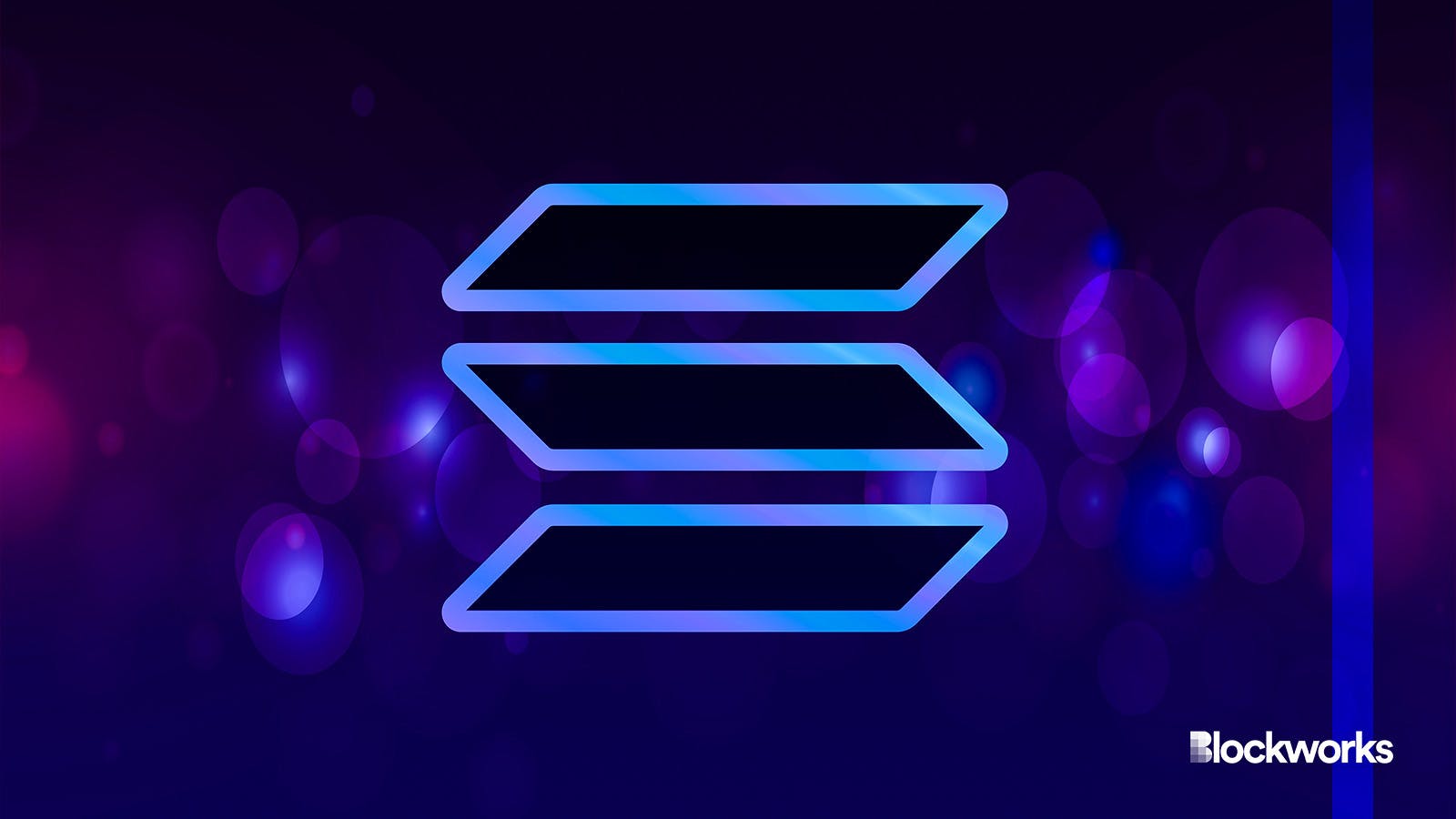Solana’s cheap fees are turning out to be a curse — for now
Solana is popular due to its cheap fees, but it’s become a little too popular with a certain crowd

Akif CUBUK/Shutterstock modified by Blockworks
If Bitcoin were completely free to use, there would be mayhem not unlike the troubles that Solana currently faces.
No fees would clog Bitcoin’s mempool — a reservoir of pending transactions — with useless mini-transfers to the point that legitimate users would face extended delays and even be ignored altogether.
Bitcoin would process transactions on a first in, first out basis. So, some rogue scalliwag could code a script to send millions of transactions for individual sats between wallets in a steady stream, beating you to the punch every time until the spam ran its course.
Considering only about 2,500 transactions fit inside Bitcoin blocks right now, it could take nearly a week in this particular scenario for your lunch money to go through.
Read more: Ordinals are driving up Bitcoin fees — but that may be good for the network
Bitcoin’s fee auction model prices out that kind of attack. Users bid against each other for inclusion in the next block. It currently costs more than 1,000 sats to send one sat with low priority, making most kinds of spam economically unfeasible and leaving more room for legitimate activity.
Solana actually does operate on a first in, first out basis. There’s no mempool, so users — usually through apps and wallets — send their transactions directly to the network’s block builders (referred to as “leaders”) for inclusion.
Users were without a priority fee option until bots took the network down for hours in peak 2021 bull market, after which developers sought to fix the spam problem by enabling real users to price out offenders. However, not all Solana apps have incorporated priority fees, reducing their effectiveness, and besides, the network is still so cheap that bots haven’t yet been deterred.
Read more: Solana blockchain transactions almost double minutes into Jupiter airdrop
Stats thrown about last week indicated that 77% of non-vote transactions were being “dropped” (which is different from “failed” despite a lack of differentiation in some wallets and apps).
Dropped transactions are functionally those that have taken too long to process, due to others getting there first. With Bitcoin, those transactions would generally sit in the mempool until they’re eventually added to blocks in times of low demand. But without a mempool, Solana simply lets those transactions disappear without processing after a period of time.
As Solana users share anecdotes of dropped transactions, insiders say most of them are experienced by arbitrage bots. They’re drowning block leaders with masses of transactions with designs to profit from sizable price differences on memecoins between DEXs. This is brought on by a mixture of low, fragmented liquidity across platforms and record-high hype since the success of BONK and WIF.
Read more: Solana breaks $200 as memecoin and airdrop interest continue
It might cost a few hundred dollars in fees for transactions that never make it. But it could all be made back and then some with one highly profitable arbitrage trade.
Unless Solana fees are higher than the economic risk of missing out on those trades, then regular folk are destined to suffer dropped transactions — an existential problem. Solana devs have known this and are encouraging more app developers to incorporate priority fees, in hopes that more bot activity could be priced out.
A new Solana version, 1.18, has been in development for months and is now expected to hit mainnet on April 15. Some anticipate it could alleviate congestion by modifying how transactions with priority fees are handled. Its actual effect won’t be known until it reaches mainnet, when it will be battle-tested under real-world conditions.
Read more: Token extensions on Solana: Q&A with Solana’s head of strategy Austin Federa
Still, a revamped fee structure doesn’t yet seem to be a priority. Instead, the most anticipated next step is reducing the network’s reliance on QUIC. This is a transport layer developed by Google years before Solana launched, with Jump Crypto’s proposed validator software Firedancer pegged to be the client that does it.
Improving Solana’s networking layer, how apps and other users communicate with the underlying infrastructure, will supposedly better inform a potential fee model overhaul in the future.
The bots are in control until then. Or, at least until memecoin mania dies and the arbitrage opportunities dry up — whichever comes first.
A shortened version of this piece was featured in the Empire newsletter, a new daily inbox item by the Blockworks news team. Subscribe here.
Get the news in your inbox. Explore Blockworks newsletters:
- The Breakdown: Decoding crypto and the markets. Daily.
- 0xResearch: Alpha in your inbox. Think like an analyst.






